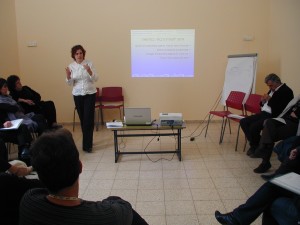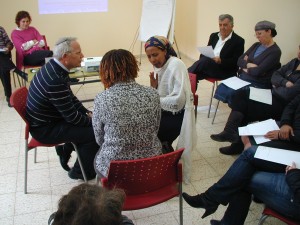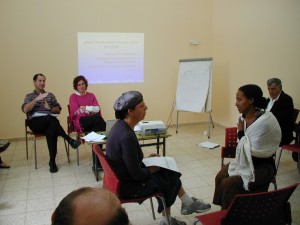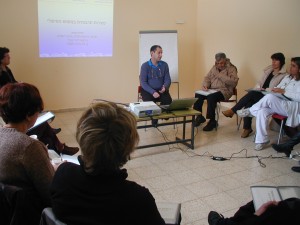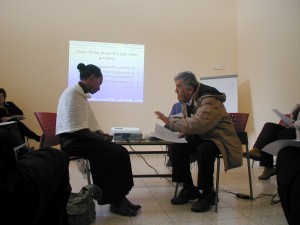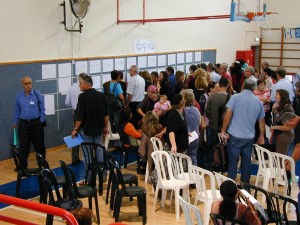Cultural Competence Training – Ir Ganim Clalit Clinic (part 2) – March 23, 2009
Today we held the second part of our first workshop on cultural competency in serving the Ethiopian community in Jerusalem. The training was delivered to all staff members of the Clalit Primary Care Clinic in the Ir Ganim neighborhood.
This time we focused on the use of interpreters (telephonic and face-to-face) in the clinic, as well as learning how to work with a cultural liaison. The Ir Ganin clinic employs a part-time Ethiopian Cultural Liaison, funded by the Ministry of Health. We used simulations to improve the learning process.
Building on the positive feedback we have received, this training will be provided to the other clinics that serve Ethiopian population in Jerusalem.

